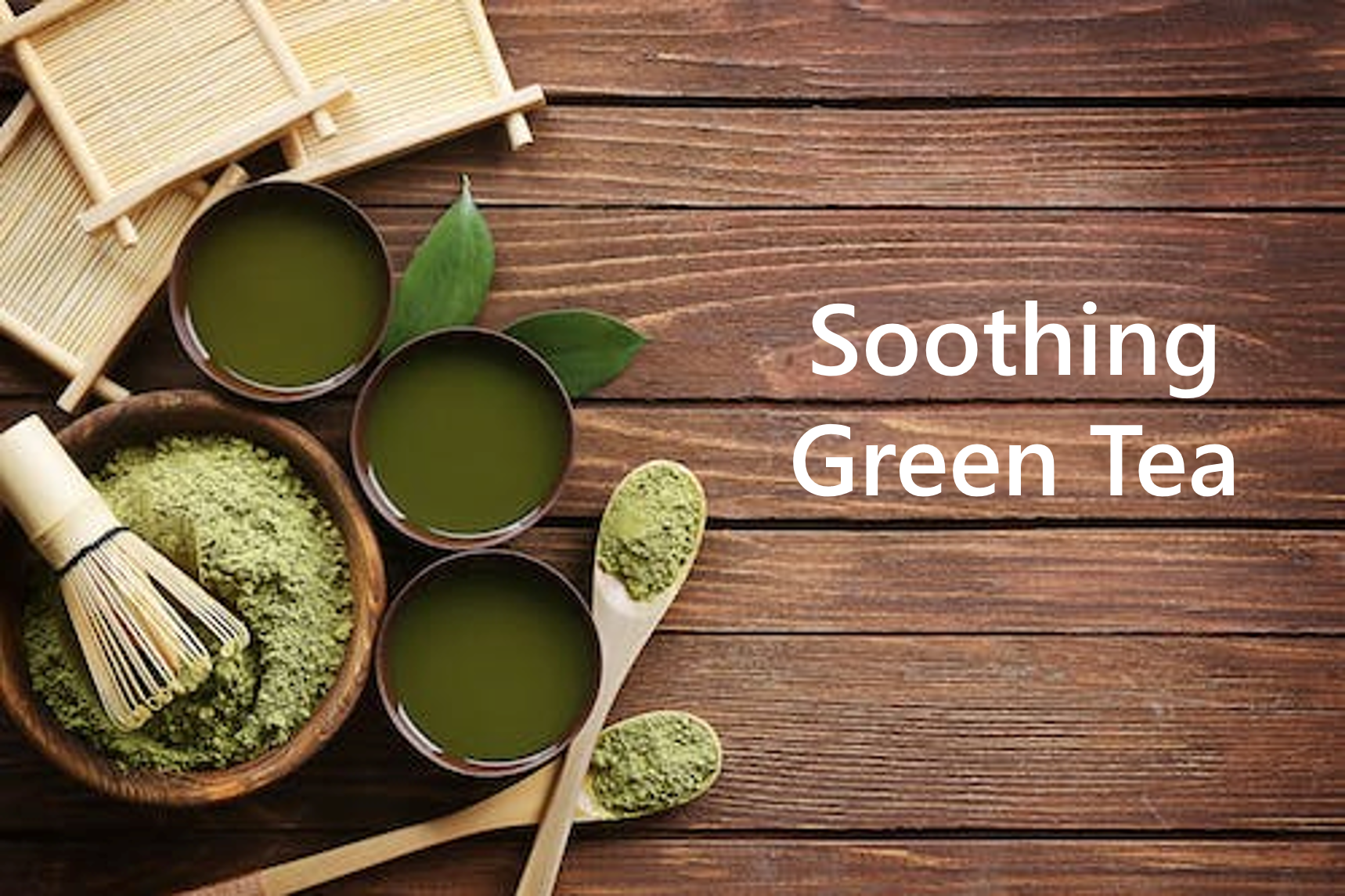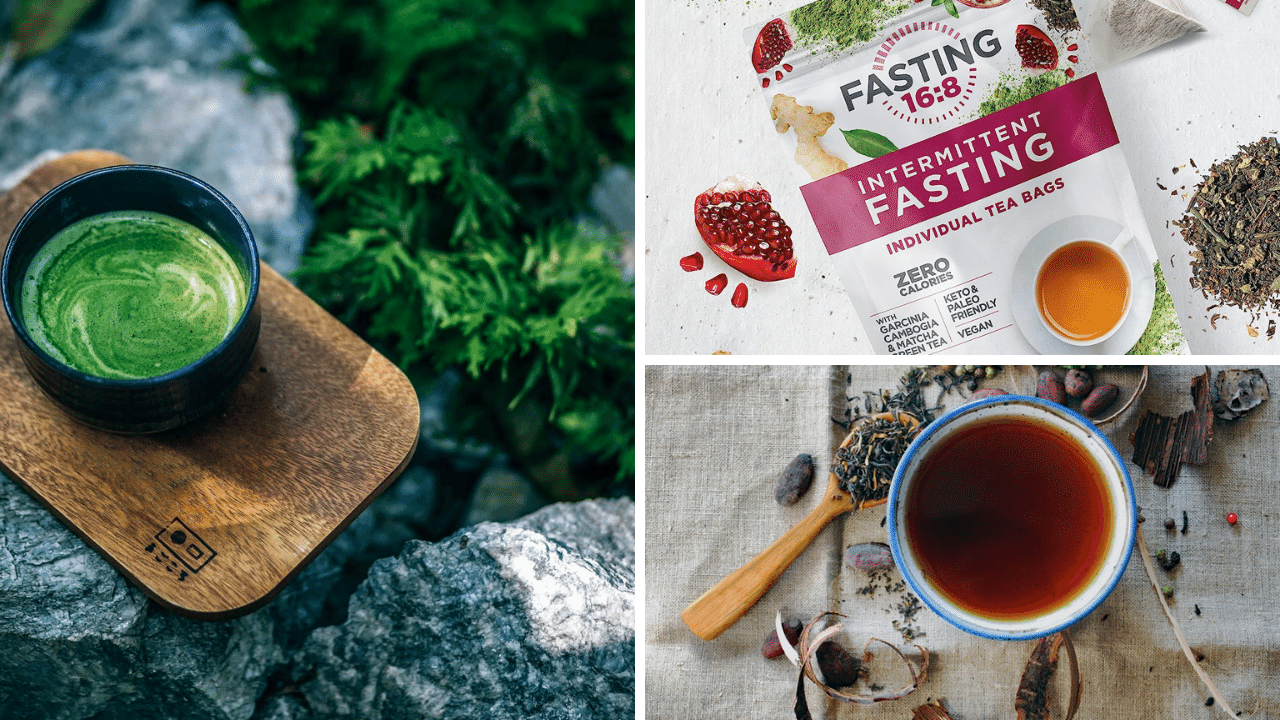Did you know there's a delicious way to make fasting easier?
Have you ever heard of Fasting Tea? It’s the perfect accompaniment to your fast, packed full of natural goodness that'll help nourish and energize your body. With its unique blend of herbs and spices designed for fasting periods, this tea is specifically engineered to give you all the benefits of fasting without having to sacrifice flavor or quality.
Not only will Fasting Teas hydrate your body as it detoxifies but also it contains essential vitamins and minerals that can produce energy in times when food isn't available - something no other drink can do! And with its exquisite taste, drinking this tea during fasts becomes an enjoyable experience instead of a punishment!

First, Let's Understand the Science of Fasting
Intermittent fasting, an ancient practice that has gained popularity in recent years, has a strong scientific basis when it comes to its effects on the body. Research has shown that intermittent fasting can have numerous health benefits, including weight loss, decreased inflammation, and improved cardiovascular health.
When we fast, our bodies go through a metabolic shift. During the fasting period, the body burns through the calories consumed in the last meal and starts tapping into stored fat for energy. This process, known as ketosis, promotes weight loss and helps individuals shed excess body fat. Studies have found that the benefits of intermittent fasting can be just as effective as traditional calorie restriction methods for weight loss, making it a viable option for those looking to manage their weight.
Moreover, intermittent fasting has been linked to reduced inflammation levels in the body. Chronic inflammation is associated with various health conditions, including heart disease and diabetes. By giving the body a break from constant food intake, intermittent fasting helps regulate insulin levels and decrease oxidative stress, leading to decreased inflammation and improved overall well-being.
Furthermore, intermittent fasting has shown promising results in improving cardiovascular health. Studies have found that the benefits of intermittent fasting can help lower blood pressure, improve cholesterol levels, and reduce the risk of developing heart disease. This may be due to the fact that intermittent fasting promotes the utilization of stored fat as an energy source, which can lead to a reduction in unhealthy cholesterol levels.
While intermittent fasting can offer significant health benefits, it's essential to pay attention to nutrient intake during fasting periods. To avoid nutrient deficiencies, individuals should focus on consuming nutrient-dense foods when breaking their fast. These include fruits, vegetables, lean proteins, and healthy fats. Additionally, incorporating supplements such as omega-3 fatty acids and multivitamins can support hormone regulation and ensure adequate nutrient levels.
The science of intermittent fasting supports its effectiveness in promoting weight loss, reducing inflammation, and improving cardiovascular health. By understanding the metabolic changes that occur during fasting and balancing nutrient intake, individuals can adopt this dieting approach in a way that is both beneficial and sustainable. It's important to consult with a healthcare professional or registered dietitian before starting any fasting regimen to ensure it aligns with individual health needs and goals.

Types of Fasting Teas and Their Unique Benefits
Different types of fasting teas offer unique benefits that can enhance your fasting experience and help you achieve your weight management goals.
First up, let's talk about Green tea. Packed with powerful antioxidants, green tea not only boosts your metabolism but also assists in fat oxidation. This means that green tea helps your body burn fat more efficiently, leading to enhanced weight loss results. Additionally, the natural compounds in green tea provide a gentle energy boost without the jitters commonly associated with caffeinated beverages.
Moving on to Ginger tea, this spicy brew offers more than just a delightful flavor. Known for its digestive health benefits, ginger tea helps to soothe indigestion, alleviate bloating, and promote healthy digestion. Moreover, ginger has anti-inflammatory properties that can provide relief from nausea, making it an excellent choice for individuals experiencing stomach discomfort during fasting periods.
Next up is Hibiscus tea, a vibrant and refreshing option that brings a wealth of benefits. Rich in Vitamin C and antioxidants, hibiscus tea supports immune function and protects against oxidative stress. Furthermore, research suggests that regularly consuming hibiscus tea may help lower blood pressure, promoting heart health and reducing the risk of cardiovascular diseases.
Last but not least, let's delve into the benefits of peppermint tea. This invigorating herbal infusion offers a refreshing alternative for those who fast. Peppermint tea helps suppress appetite and curbs hunger pangs, making it easier to stick to your fasting routine. Additionally, it aids in digestion, alleviating digestive issues such as bloating and gas. The cooling sensation of peppermint tea also provides a soothing effect, helping you relax and unwind after a long day.
Each type of tea offers its own set of advantages, making them essential for individuals looking to manage their weight effectively during fasting periods. Incorporating these teas into your fasting routine can make a significant difference in your overall well-being and help you achieve your weight management goals.

Pros and Cons of Fasting Teas vs. Other Fasting Beverages
When it comes to intermittent fasting, nothing beats the simplicity and purity of water, but it can get a bit boring after a while. Fasting tea, on the other hand, is something that has gained a lot of attention lately and has been touted as a great alternative to water during fasting.
One of the main benefits of tea while fasting is that it provides a variety of flavors and aromas, making the fasting period more enjoyable. Unlike water, which can sometimes leave you feeling unsatisfied, Fasting tea offers a sense of fulfillment without breaking your fast. Additionally, certain types of tea, such as Matcha tea or Green tea, are rich in antioxidants (aka Green tea catechins) and can help in detoxification and boosting metabolism.
However, it's important to note that Fasting teas do have their limitations. Since some teas contain caffeine, they may not be suitable for everyone, especially those who are sensitive to stimulants. It's also crucial to choose herbal teas or non-caffeinated options to avoid any interference with sleep patterns during fasting periods.
When comparing Fasting teas to juice fasting, there are significant differences in terms of nutritional value and sustainability. Juice fasting typically involves consuming fruit or vegetable juices, which provide essential vitamins and minerals. However, juices are often high in sugar and lack fiber, leading to potential blood sugar spikes and crashes. Fasting teas, on the other hand, provide a zero-calorie option that can still offer various health benefits.
Another popular fasting beverage is bone broth, which has gained traction due to its high protein content and potential benefits for gut health. Unlike tea, bone broth provides essential nutrients like collagen, amino acids, and minerals. However, bone broth fasting requires more preparation time and may not be suitable for vegetarians or vegans.
Optimal Timing and Tea Prep for Intermittent Fasting
Timing Matters
Timing plays a crucial role when it comes to consuming tea. By aligning your tea consumption with specific times of the day, you can maximize its benefits and support your overall intermittent fasting goals. Let's break down the ideal moments throughout your fasting day to enjoy a cup of tea:

- Morning Boost: Start your day with a cup of green tea to kickstart your metabolism and provide a gentle energy boost. This can be especially beneficial if you practice intermittent fasting or are following a time-restricted eating pattern.
- Midday Reset: As the day progresses, fatigue may set in. Enjoy a refreshing cup of tea during midday to rejuvenate your senses, help control cravings, and maintain focus.
- Pre-Meal Ritual: Drinking tea before a meal can help prepare your body for digestion, enhance nutrient absorption, and support healthy metabolism. Consider enjoying a cup about 30 minutes before your main meals.
- Evening Relaxation: To unwind after a long day, indulge in a calming cup of tea in the evening. Choose herbal blends that promote relaxation and aid in stress relief, such as chamomile or lavender-infused teas.
Tea Preparation Methods
Now that we have explored the importance of timing, let's dive into the different tea preparation methods that can elevate your intermittent fasting experience:
- Hot Infusion: The traditional method of steeping tea leaves in hot water unlocks the full flavors and therapeutic properties of herbs and botanicals. Use water just below boiling point and steep the tea for the recommended time to extract the maximum benefits.
- Cold Infusion: If you prefer a refreshing and milder flavor, opt for cold infusion. Simply place tea leaves or tea bags in cold water and let them steep in the refrigerator overnight. This method is perfect for summertime or when you desire a cooling effect.
Brewing Techniques for Maximum Enjoyment
To ensure you savor every sip of your tea, here are a few brewing techniques to enhance the flavors and optimize nutrient absorption:
- Steeping Time: Follow the recommended steeping time for the specific type of tea you are using. Oversteeping can result in bitterness while understeeping may lead to weak flavors.
- Water Quality: Use filtered or spring water to brew your tea. The quality of water can significantly impact the taste and overall experience.
- Experiment with natural sweeteners like honey or stevia to add a touch of sweetness without compromising your fasting goals. Additionally, consider adding a twist of lemon or a sprig of mint for added freshness and aroma.

Unique Fasting Tea Recipes
To further enhance your fasting journey, we present you with a brief collection of unique tea recipes to try while fasting:
- Turmeric-Infused Green Tea Cocktail: Combine the vibrant flavors of green tea with the anti-inflammatory benefits of turmeric. Add a squeeze of lemon and a dash of honey for a warm and cozy taste.
- Refreshing Mint and Lemon Hibiscus Infusion: Cool down on warmer days with this invigorating blend of hibiscus, fresh mint leaves, and a burst of tanginess from lemon slices.
Incorporating these tea blends into your fasting routine not only adds variety but also provides additional health benefits tailored to your preferences and needs.
Make Yourself a Promise and Join the Fasting Revolution, Now!
Nutritional Benefits of Key Tea Ingredients
Unveil the Power of Turmeric
Turmeric is a powerful spice that has been used for centuries in traditional medicine. Its active compound, curcumin, has shown promising anti-inflammatory properties. During fasting, inflammation may increase due to restricted food intake. By consuming turmeric tea, you can reduce inflammation and support your body's natural healing processes.
Additionally, curcumin has been found to boost metabolism, which can aid in weight loss and maintenance during fasting periods. By incorporating turmeric into your fasting routine, you can help optimize your metabolic function and achieve your desired results.

The Calming Effects of Chamomile
Chamomile, with its gentle and soothing properties, is an excellent choice for your fasting period. The calming effects of chamomile tea can help reduce stress and promote relaxation. Fasting can sometimes be challenging, and stress levels may rise during this time. By enjoying a cup of chamomile tea, you can create a calming ritual that supports both your physical and mental well-being.
Lemon is Magic
Lemon, a citrus fruit rich in vitamin C, is a perfect addition to your fasting routine. Adding a few slices of lemon to your tea provides a refreshing flavor while offering numerous health benefits. Lemon helps detoxify the body by supporting liver function and aiding in digestion. Hydration is crucial during fasting, and lemon-infused tea can be an excellent way to stay hydrated while adding a burst of flavor.
When you harness the power of these key tea ingredients, you can enhance your fasting experience and improve your overall health. So, why not sip on a cup of turmeric, chamomile, or lemon tea during your fasting period and reap the nutritional benefits? Cheers to a healthier you!
Scientific Research and Expert Opinions on Fasting Teas
Recent studies have shed light on the positive impact of tea consumption during fasting periods. According to a pilot study published in the National Center for Biotechnology Information, intermittent fasting combined with tea intake showed improvements in health markers, particularly in individuals with type 2 diabetes (source: PMC5394735). Another study revealed that fasting, along with a lactovegetarian diet, had beneficial effects on rheumatoid arthritis patients, with very few side effects (source: tandfonline.com).
Many renowned healthcare professionals and nutritionists emphasize the role of tea in supporting fasting goals. They suggest that tea, being calorie-free, can help control cravings and contribute to a sense of satiety during fasting periods. Additionally, the presence of antioxidants in tea can aid in detoxification and support overall well-being.
According to Dr. Sarah Nelson, a registered dietitian, "Tea is a great option for those looking to maximize the benefits of fasting. Its hydrating properties, combined with the potential metabolic boost and cognitive enhancement, make it an excellent choice."

People also want to know...
What kind of tea is best for fasting?
Black or Green tea is the best choice for fasting due to its high antioxidant content, low-calorie count, and potential to boost metabolism. Green tea is the most popular; Black tea is a more fermented version of Green tea. Tip: always look for decaffeinated teas for minimal side effects while fasting.
How many cups of tea can you have while fasting?
While fasting, you can safely drink an unlimited number of cups of unsweetened tea. Tea has no calories and contributes to your fluid intake. Avoid adding milk, cream, or sweeteners. Enjoy different types of tea, green tea, or herbal teas, based on your preferences. Stay hydrated and listen to your body's needs.
Does lemon water break a fast?
Lemon water may break a fast because it contains calories and could stimulate digestion. However, if consumed in small amounts (less than 50 calories) it may have minimal impact on fasting benefits. Source: Healthline.com
Will drinking apple cider vinegar break my fast?
Drinking apple cider vinegar will not break your fast. Apple cider vinegar contains virtually zero carbohydrates or calories, making it safe to consume while fasting. (Sources: Greatist, Dr. Berg, Times of India, 21 Day Hero, Body Mind Fuse, Swolverine, Autumn Elle Nutrition, The Healthy)
Will stevia break a fast?
According to several sources, including Healthline, Zero Longevity, and MedicineNet, using stevia in moderation is unlikely to break a fast or reduce any of the potential benefits you're trying to obtain from fasting.
I like honey with my tea. Will honey break a fast?
Yes, honey will break your fast because it contains calories and spikes insulin levels.

May we say in conclusion...
First and foremost, fasting teas help to suppress appetite, making it easier to stick to your fasting schedule without hunger pangs or feeling deprived. The natural ingredients in these teas work harmoniously with your body, keeping hunger at bay and allowing you to achieve your fasting goals effortlessly.
Furthermore, fasting teas are known for their ability to boost metabolism and increase fat burning. Research has shown that certain teas, such as green tea and oolong tea, contain antioxidants and compounds that stimulate the body's thermogenic processes, resulting in greater calorie expenditure. By sipping on these teas during your fasting window, you can maximize the fat-burning potential of your body and accelerate weight loss.
Additionally, fasting teas offer a wide range of health benefits beyond weight management. Many teas are known for their detoxifying properties, helping to cleanse the body of toxins and promote optimal organ function. Some teas, like chamomile and peppermint, have soothing properties that can ease digestive discomfort and promote relaxation during fasting periods.
To make the most of fasting teas, here are some tips and insights to guide you along the way. Always, opt for high-quality teas sourced from reputable brands to ensure maximum potency and effectiveness. Experiment with different flavors and varieties to find the ones that resonate with your taste buds and preferences. Incorporate teas at different times of the day based on their specific benefits - for example, green tea in the morning for an energy boost, and herbal teas in the evening to promote relaxation and better sleep.
You got it! Now, it's time to embark on your fasting journey and experience the incredible benefits of tea for yourself. Explore the vast array of flavors and blends available, from revitalizing green teas to comforting herbal concoctions. Check out our website zBestGuide.com to learn more about intermittent fasting and ways to enhance your success!
Begin your fasting adventure today and unlock a world of wellness and vitality with tea. Take a sip, savor the flavors, and embrace the transformative power of tea. You're going to be glad you did... 👇











